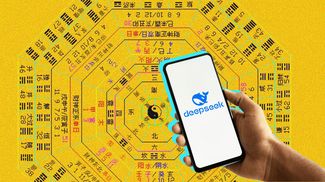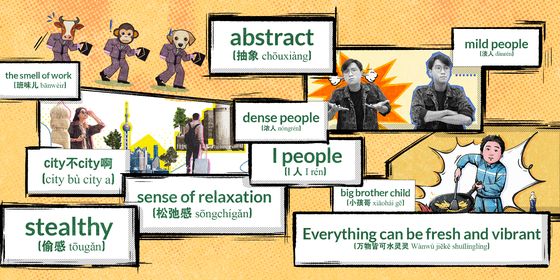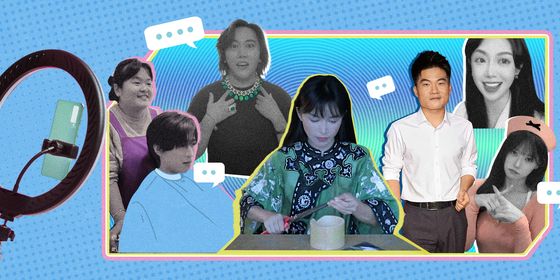The top 11 most confusing WeChat emojis explained
State media calls it the “new channel for individual expression,” but to Chinese netizens, it’s the source of a new “generation gap” (代沟 dàigōu). WeChat has certainly opened up new avenues of communication in China, not in the least by providing a rich arsenal of emojis and “stickers” that help us put hard-to-convey nuances and human expressions in messaging.
Well—supposedly. As shown by a recent guide published by Quartz, not to mention perennial accounts from Chinese internet users of funny ways in which parents and older relatives misuse expressions or make tacky stickers of their own, WeChat expressions can elucidate subtexts as much as they add further cryptic nuances to conversation. We took a poll of a group of international graduate students at the Communication University of China as well as our own staff on the WeChat expressions that confuse them the most, and discovered that apart from the oft-touted “generation gap” in people’s understanding of these expressions, there are also misunderstandings rooted in cultural differences as well as the fact that it’s really hard to get across a complex emotion in an illustration that’s a few millimeters across.
Below, we’ve listed the 11 expressions that confused our respondents most, excerpting some of their responses as well as the “official” explanation, as defined by the commands you can type in the app get the expressions to show up in both the Chinese and English settings of the app. Due to time constraints, we’ve limited ourselves to just the faces that come pre-installed in the WeChat app, which also existed on Tencent’s older messaging platform, QQ. Finally, we asked TWOC editor Sun Jiahui, our very own expert on Chinese internet slang and writer of our “Street Talk” section, to weigh in on how some of these expressions are used among her own acquaintances. The list is written in the order in which each expression appears in the default emoji menu on the WeChat app.
1.
![]()
Keyboard command (Chinese): [白眼] (báiyǎn, literally, the white of your eyes; eye-roll)
Keyboard command (English): [Slight]
Opinions: Our respondents overwhelmingly picked this one as the most confusing, and, fittingly, thought this was the emoji for confusion. Admittedly, the raised eyebrows are misleading, and the meaning is very specific to Chinese culture. To show or “flip” (翻 fān) the white of your eyes at someone is like rolling your eyes in annoyance or disdain.
2.
![]()
Keyboard command (Chinese): [傲慢] (àomàn, pride)
Keyboard command (English): [Smug]
We also got responses like “thinking” and “confused” for this one. The Chinese meaning is actually closer to “scornful” than “smug,” though.
3.
![]()
Keyboard command (Chinese): [饥饿] (jī è, starving)
Keyboard command (English): [Hungry]
This one is not available in the menu of some newer versions of the WeChat app, probably because no one understands it (is it upset? Did it eat something bad? Is it disbelieving?). You can still make it with the keyboard commands, though.
4.
![]()
Keyboard command (Chinese): [悠闲] (yōuxían, relaxed)
Keyboard command (English): [Commando]
Nobody knew what this was, but we think the English meaning makes more sense than the Chinese one.
Among Chinese users there is also a lot of confusion about this one—as one user asked on Baidu’s forums, “I was talking to a girl and she sends me the ‘relaxed’ expression. What does this mean? It’s the one with the cigar.” He got a whopping 15 responses, each with a different explanation, ranging from “she’s bored” to, “she’s interested in you,” “she’s happy,” “she doesn’t want to talk to you,” “she’s haughty and indifferent,” “she’s relaxed,” and, of course, “don’t overthink it.”
Expert answer: “It means you don’t care about what you just said. Maybe you said something inappropriate, but you’re saying, ‘that’s just the way I am, deal with it,’” says Jiahui.
5.
![]()
Keyboard command (Chinese): [奋斗] (fèndòu, fight, strive)
Keyboard command (English): [Determined]
“I also am confused on this,” says, one of our respondents, Andria. “Is this like, ‘I will work hard,’ or ‘don’t disturb me, I’m studying,’ or ‘thug life?’”
The headband holds the answer. It’s supposed to be a Japanese scarf known as the hachimaki (钵卷 bōjuǎn in Chinese, literally “helmet roll”), a thin strip of cloth worn around the head as a symbol of one’s intention to work hard or accept challenges. Because it’s frequently seen in Japanese media, usually on the heads of sports fans or students buckling down to study for an exam, the image of someone wearing hachimaki became shorthand for perseverance and determination in China as well.
6.
![]()
Keyboard command (Chinese): [咒骂] (zhòumà, curse at, verbally abuse)
Keyboard command (English): [Scold]
The English version is much tamer than the Chinese, but regardless, a lot of people thought this looked like coughing or sneezing.
7.
![]()
Keyboard command (Chinese): [衰] (shuāi, decline, decay)
Keyboard command (English): [Toasted]
No one reported ever seeing this expression used, and some thought it looked kind of racist. The official explanation on QQ’s forums is that you use it when you or the person you are talking to experience bad luck. It can sometimes be found without any accompanying text on people’s WeChat moments or private messages, inviting an outpouring of concern from friends who ask, “What’s wrong??” and “Want to talk about it?” It’s a great way to fish for sympathy, unless it’s from TWOC, because clearly, we didn’t know what it meant. On Baidu’s forums, a user who asked “What do I do if a girl sends me the ‘decay’ emoji?” was advised to “comfort her.”
Expert answer: “We use it when someone says something totally ridiculous, and you want to say, ‘I have nothing to say to that,’ or ‘I’ve been ‘struck by lightning,’” says Jiahui—essentially, struck dumb.
8.
![]()
Keyboard command (Chinese): [敲打] (qīaodǎ, knock, strike)
Keyboard command (English): [Hammer]
Another one that our respondents found confusing, and questions about it also pops up regularly on Chinese forums. Neither the English or Chinese commands are helpful. Are you hitting yourself? Is the other person hitting you? Why? It’s a confusing one because in every other expression in the package, the face is assumed to be the sender’s face.
On Baidu’s forums, when a user asked “What do I do if my girlfriend sends me the ‘knock’ emoji?” (we’re seeing a pattern here), he was advised to “send back the ‘mischievous’ expression [winking with the tongue sticking out] and say, ‘please help me improve.’”
Expert answer: “It’s when someone says something kind of inappropriate or annoying, so you knock them on the head, but playfully; you’re not seriously mad,” says Jiahui.
9.
![]()
![]()
Keyboard command (Chinese): [右哼哼] (yòu hēnghēng, “hmph!” to the right) [左哼哼] (zuǒ hēnghēng, “hmph!” to the left)
Keyboard command (English): [Bah! R] [Bah! L]
Why does one need to “hmph!” or “bah!” to both the left and right? Are you supposed to use both together? Are they supposed to face each other or face away from each other? The only explanations Chinese netizens have come up with are “because different people express their scorn differently” (Baidu forums) and “to be symmetrical” (Douban).
10.
![]()
Keyboard command (Chinese): [鄙视] (bǐshì, disdain, look down upon)
Keyboard command (English): [Pooh-pooh]
The real question here is, why are there so many different emoji for disdain and scorn on Tencent’s messaging platforms?
11.

Keyboard command (Chinese): [跳跳] (tiàotiào, jump) [发抖] (fādǒu, tremble) [怄火] (òuhuǒ, holding in anger) [转圈] (zhuànquān, twirl)
Keyboard command (English): [Waddle] [Tremble] [Aaagh!] [Twirl]
Our respondents also reported being confused by these emojis. They feature the scarf-wearing QQ penguin in a variety of poses that our editor David Dawson refers to as “dancing.” “All of these penguins can be steps in a dance,” he insists.
Expert answer: “I’d use it when I’m talking to my mom, and if I’m happy about something, I put the first [penguin] at the end of the message. To me, the second one means ‘falling down in shock,’ the third one means I’m angry, I’ve been pushed over the edge, and the last one is about the same as the first one,” says Jiahui. Basically, it’s a cute penguin being happy (and occasionally angry) in a cute way. Deal with it.
Cover image from bz55.com












